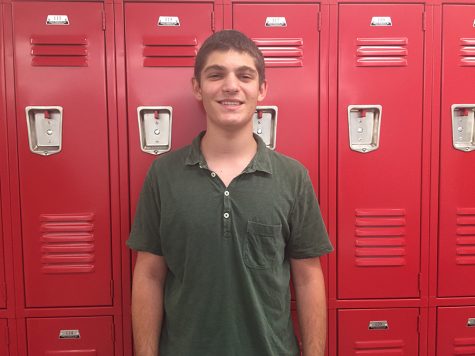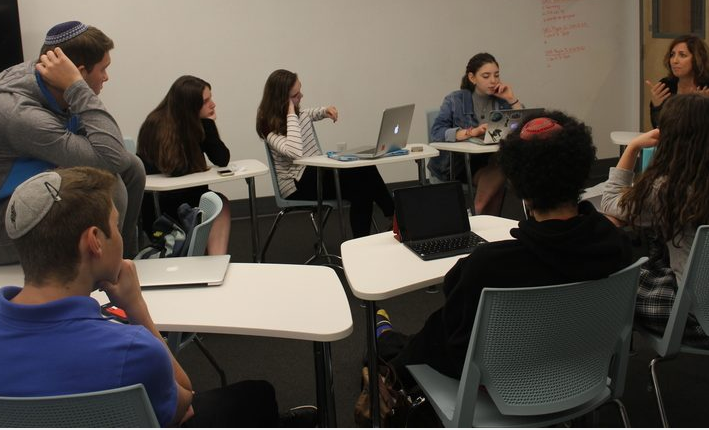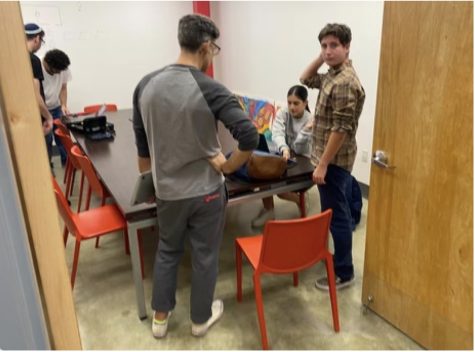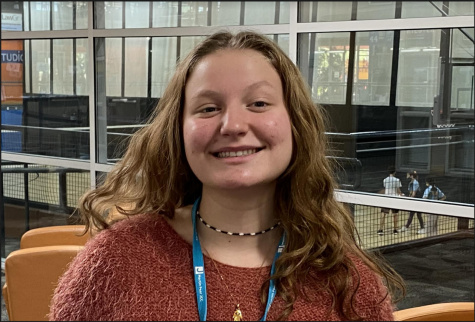Agenda says it will bring election rules, Constitution to Town Hall
QUESTIONS: The Agenda Committee met Dec. 12 in Room 204. The committee, which decides Town Hall topics, has decided to take up the question of whether the Just Community Constitution should be thrown out.
The Agenda Committee decided last month to devote the first Town Hall after December break to discussing if and how the school’s Just Community Constitution will be used in the future.
Last August, the Committee decided that the Constitution wouldn’t be high up on its list of priorities, though the document had been found in June after being missing for about two years.
It was found in the middle of the spring Just Community election campaign, and contained provisions some of which were being followed and others ignored.
But at its meeting Nov. 28, the group decided to bring it up early in 2017. Agenda Chair Bennett Schneier said that at the very least, the Town Hall would tackle procedures for elections.
“Certainly before the election there will be established rules that will be decided, I hope, in a Town Hall forum,” said Bennett in an interview Nov. 30.
The Nov. 28 meeting was contentious and divided, with disagreement over whether the Constitution mattered at all. In the end, members decided by consensus to bring the topic to Town Hall, hoping to address publicly a range of issues covered by the Constitution.
Most notably, three recent Just Community elections have been controversial: the 2016 and 2015 elections for Agenda officers, and 12th-grade Fairness representative elections this fall.
Questions arose about vote counting, publicly announcing vote totals, who could run, and whether candidates could run as members of a political party.
Eleventh-grade representative Rosie Wolkind was the one who brought the subject up.
“It has to start from us,” said Rosie. “If we start amending the Constitution now, the school will take it more seriously.”
Alec Fields, representative for Grade 12, said the Constitution is an issue that belongs to, and should be addressed by, the entire Just Community.
“Even though we haven’t used it, doesn’t mean it’s not important,” said Alec. “It’s the foundation of our school… Deciding whether we should throw it away isn’t a decision that we as the Agenda Committee have the power to make.”
That began a 10-minute conversation about what should be done about the document. Many perspectives were brought up, including the question of whether students would appreciate the discussion.
“How much do people actually care?” asked 10th-grade representative Talia Gill.
Bennett said the Constitution is not important at the moment and the Agenda Committee has more important things to deal with.
“What’s the certainty that they don’t forget about it again in the next four years?” asked Bennett. “We can make the constitution and feel really good about ourselves and be really self-congratulatory, but the point is to have a community that cares about the Just Community.”
The room was split almost evenly over whether the Constitution was an issue that should be brought before the student body or not. After a lengthy and heated discussion, the committee decided that a Town Hall was necessary.
While the Just Community Constitution may or may not have much of an effect on the daily lives of Shalhevet students, there are two periods of time when it becomes especially relevant: fall and spring election seasons.
Three of the past four Just Community elections have featured some sort of controversy.
Two years ago, then-junior Will Bernstein ’16 attempted to create a political party to run with for Agenda Chair. The constitutionality of this was questioned and before both the Agenda and Fairness committees, and ultimately the Fairness Committee did not allow it.
Last year, then-sophomore Rosie Wolkind ran for Agenda Chair. This was the first time in Shalhevet’s history that a rising junior had run for Agenda Chair and, as it turned out when the Constitution was found, clearly unconstitutional. The Constituation states that the Agenda Chair must be a senior, but Rosie was allowed to run regardless.
This year, there were 12th-grade representative elections for the Fairness Committee, something that was required by the Constitution but hadn’t been seen at Shalhevet for at least the past four years.
But the Fairness Chairs – not the students in the grade – picked the winners, and that was unconstitutional too, according to most readings of the document.
In an interview with the Boiling Point after the Nov. 28 meeting, Bennett said there would be no questions about this year’s elections, pledging there would be rules and guidelines in place that will have been decided, he hopes, in Town Hall. Whether they take the form outlined in the current Constitution remains to be seen.
“I don’t know if we’re going to codify something in a Constitutional way,” Bennett said, “but just in terms of process – what is allowed, what is not allowed – is gonna be decided in a democratic way.”
He also said the Town Hall planned for after winter break to discuss the Constitution would most likely feature a discussion of whether to keep or get rid of it.
When asked if the Agenda Committee has a plan should the student body decide to throw away the Constitution, Bennett replied, “Not at the moment.”
“One step at a time,” said Agenda Vice Chair Isaac Goor during the committee’s next meeting, Dec. 5. “We haven’t dealt with Part A. We’re not gonna deal with Part B.”

Zev Kent is a senior at Shalhevet and is the Senior Editor and Features Editor of the Boiling Point. Over the past three years, Zev has written many articles for the Boiling Point about sports, community, and outside news. In addition, he did play-by-play for the Boiling Point broadcast of the Steve Glouberman Basketball Tournament.











